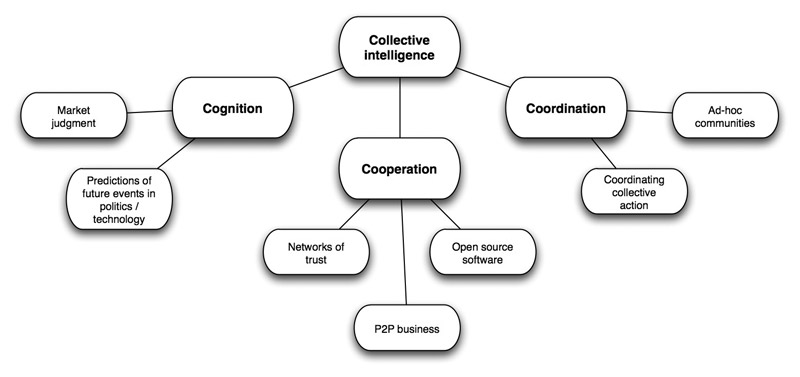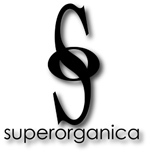Motivations
MySpace was cool - but now it's owned by Fox (not cool anymore). Google and YouTube were cool concepts - but lurking in there are people trying to sell you everything and anything, and linking your thoughts and creative outputs to all kinds of wierd things (to be fair, the soul of Google is still in a struggle between good and evil). Our culture does not need ads attached to it at every turn. When we think of Bob Dylan, what really matters? His songs, or the fact that he is plugging cars and XM Radio? Does anyone really want to see Guernica used on a french fry box? The best art, music, and films that have been produced can be spiritual, universal, transcendent, and rebellious. When we see our culture subverted for some other purpose, to sell products, to move merchandise - we accept it, but we feel a little sick. We rationalize the concept of selling out - but we know deep inside that it makes us sick inside. Working for a living is different from selling your soul for a dollar - and a lot of our culture is based on artists selling their soul, compromising in ways we can not imagine. We think that now is a good time to sever the somewhat abusive relationship between art and commerce. While hippies, beats, and punks morphed into commercial shadows of the origins of their ideas and movements, many meek and mild-mannered coders began to live and work according to the a new ethic, known as the hacker ethic. Many great coders became great at business (Microsoft, Google) and turned their talents into billions of dollars. But a significant number became folk heroes and developed viable alternative to closed or commercial software. Let's produce great music, art, and film - and allow the world to share in it, pass it on, and contribute to it - freely. Yes - we would all like to live like decadent rock and movie stars with our own jets and shark stories (see Led Zeppelin) - but we have all lost our way. We need to get back. A wide, global, and massive collective of artists of all types, working with each other in a cooperative and free manner for the rest of everyone to enjoy - we think that this is a step in the right direction.
The Power of Coordinated Decentralization - Open Systems Projects
One of our proposals is that through cooperative and coordinated, yet decentralized peer-to-peer project teams, we can effectively compete with, and surpass, anything created by centralized, top-down system (ex: Fox, Columbia, Warner Brothers). We need and want your individual creative contributions. The antidote to a consumer society is a co-producer society, where almost all of us can contribute, enjoy, and participate. New movements, such as the One Laptop For Child organization, will foster on a global scale the exchange of creative and collaborative content. We believe that our open systems projects concept will become an innovative and transformative way to create and develop music, art, films, and related media.
The Problem of Profit
Many of our greatest artists, musicians, authors, and filmmakers made millions, even billions on their creative output. We are not advocating that artists need to starve or live in a box on the street in order to be credible or to produce authentic works. We are in a period of major transition - one where the means to produce and distribute music, film, and art on a large scale is within the means of the individual. Collective groups (such as those who work on Linux) can collaborate all over the world through the high-speed web. How those who produce creative work will benefit, and possibly even live and flourish from their output, is unclear at this point. This uncertain and indeterminate situation did not stop hundreds of thousands of coders from banding together and moving forward - so why it should it stop the effort here. We need and want artists to take what we're calling the magic leap - to jump in and not exactly know what will happen here, but know to know that the direction is good and the ethics are sound. By distributing all of the Superorganica media through the Creative Commons Share-Alike license, we are permitting a wide array of non-commercial use and participation, while at the same time we reserve the rights for commercial aspects (if they are ever needed or make sense to utilize). We want the billions of people on earth to freely access and enjoy the media we and our collaborators create - but we are not giving commercial corporations the right to have their way with what we produce. We want to direct connection between the artist and the listener/viewer/participant. We want and interactive and positive exchange loop - an open system.
Origin of the Name
The name Superorganica comes from the concept of super-organic, a term first coined by the Nineteenth century evolutionist Herbert Spencer. He saw the super-organic as an emergent property of interacting people and organisms - a property which could not easily be understood from the individual alone. The term was later adopted by the anthropologist Alfred L. Kroeber in 1917, who looked upon it as a form of collective intelligence.

Examples of positive collective intelligence projects such as free software should not be confused with mob behavior or groupthink.
Open Systems Media
The
open systems media concept is something we thought about for some
time. We are not looking at the open systems computing model, nor are we
looking at the open source model. We are looking more closely at the
open systems concepts from
general
systems theory.
An open system is a state of a system, in which a system continuously interacts with its environment. Open systems are those that maintain their state and exhibit the characteristics of openness previously mentioned.
Open systems contrast with closed systems. Systems are rarely ever either open or closed but open to some and closed to other influences. [1]. Basic characteristics of an open system are environment, input, throughput and output. And some control systems with feedback. The definition of a "system" is often arbitrary; a system may be defined as the region of space under study being characterized by a collection of components or elements related in some way.
The concept of an "open system" is originally developed in thermodynamics, and since the 1950s also in systems theory. Nowadays the concept has its applications in the natural and social sciences.
In the natural sciences
In the natural sciences an open system is one whose border is permeable to both energy and mass.[2] In physics a closed system, by contrast, is permeable to energy but not to matter.
Open systems have a number of consequences. A closed system contains limited energy. The definition of an open system assumes that there are supplies of energy that cannot be depleted; in practice, this energy is supplied from some source in the surrounding environment, which can be treated as infinite for the purposes of study. One type of open system is the so-called radiant energy system, which receives its energy from solar radiation – an energy source that can be regarded as inexhaustible for all practical purposes.
In the social sciences
In the social sciences an open systems is a process that exhange material, energy, people, capital and information with its environment.
The concept we are trying to create is a massive open system for media, fueled
by free, sharing
Creative Commons (or similar) licenses - which permit a lot of free
interactions and passing on of music, movies, etc.. We believe that such a large
open & free system, if we can achieve a critical mass of artists, musicians,
filmmakers, etc., will reshape our culture which is currently propelled by
massive corporations (Sony, DreamWorks, etc.). This kind of social movement will
be a parallel to the free software movement, which has produced excellent
results (hopefully more coming). We want to see the equivalent of a Beatles
emerge from this, a Star Wars created by massive groups of people working
together outside of the corporate media structures - and our belief is that the
end result will be better that what the corporations can produce. We feel let
down and sold out by past social movements - the beats, the hippies in the 60's
- but the quiet software hackers actually seemed to live by the philosophies
talked about by millionaire artists and musicians. We want to see and help
facilitate a full synthesis of the creative arts with a free culture philosophy,
and with output that is as good or better than the best that it out there. No
one has gone all the way in the creative arts yet - we want to go all the way
and change the whole game - and that may have a profound impact on society.
We realize that the word "open source" has been a source of contention between
the Free Software Foundation and the Open Source movement (http://www.gnu.org/philosophy/free-software-for-freedom.html).
Our open systems media concept is a new synthesis of philosophies that draws
from numerous past sources as well as internal thoughts. We see both concepts as
pointed in the right general direction The GNU folks have the following
thoughts:
Relationship between the Free Software movement and Open Source movement
The Free Software movement and the Open Source movement are like two political camps within the free software community.
Radical groups in the 1960s developed a reputation for factionalism: organizations split because of disagreements on details of strategy, and then treated each other as enemies. Or at least, such is the image people have of them, whether or not it was true. The relationship between the Free Software movement and the Open Source movement is just the opposite of that picture. We disagree on the basic principles, but agree more or less on the practical recommendations. So we can and do work together on many specific projects. We don't think of the Open Source movement as an enemy. The enemy is proprietary software. We are not against the Open Source movement, but we don't want to be lumped in with them. We acknowledge that they have contributed to our community, but we created this community, and we want people to know this. We want people to associate our achievements with our values and our philosophy, not with theirs. We want to be heard, not obscured behind a group with different views. To prevent people from thinking we are part of them, we take pains to avoid using the word “open” to describe free software, or its contrary, “closed”, in talking about non-free software.
We see Superorganica as being part of a broader free culture/free thought movement that goes back thousands of years. People should have the right to think and be free. We believe that the founding fathers of the U.S. inherently believed in a free culture and society. We believe that people like Bob Marley and Woody Guthrie and many others devoted their lives to the artist concept of freedom - and were not at the root of it all motivated primarily by the concerns commerce. We inherently believe that the people of the world need music and art and film and writing to provide meaning and context to their lives - and that we've come to a point in time where we must filter out the commerce aspects in order to have an outpouring of creative work because it is inside you and calling to get out. Period.

